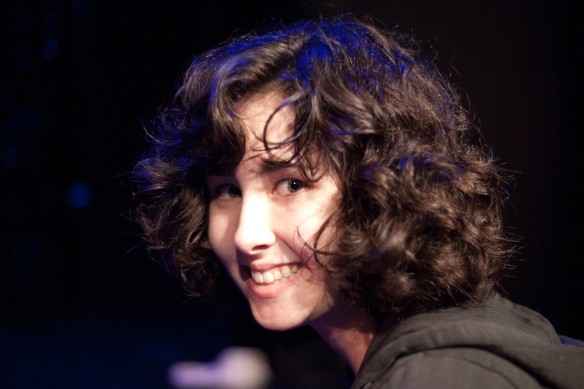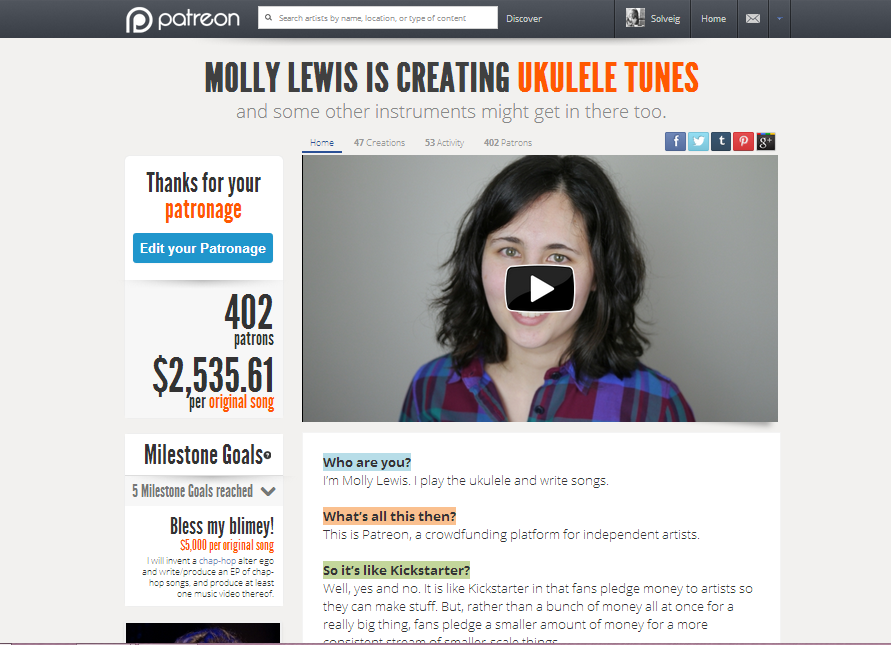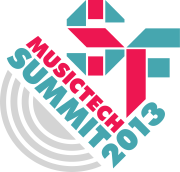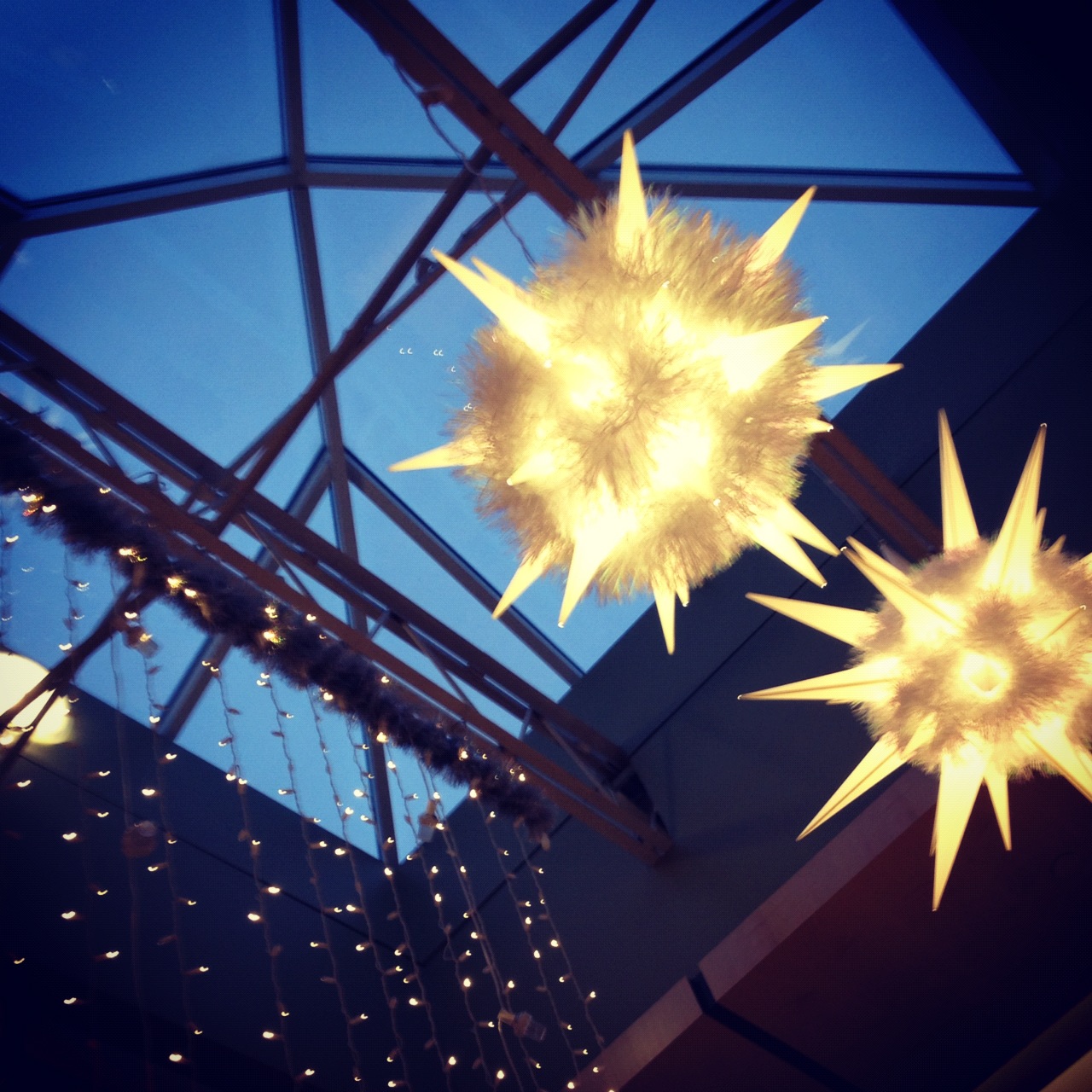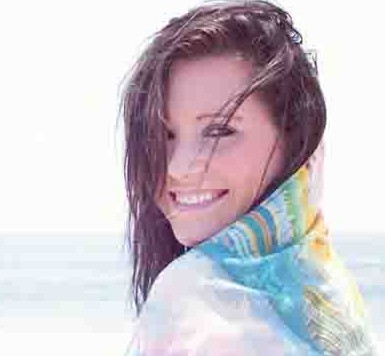[Photo by Atom Moore]
A few facts to introduce this interview:
- Molly Lewis’ (@molly23) ukulele cover of Britney Spears’ Toxic, which she first played at her high school talent show, went viral on YouTube in 2007. Now Molly writes witty, original ukelele songs and opens for Jonathan Coulton.
- Molly Lewis is a YouTube star, but she doesn’t much like YouTube anymore, at least not as a way to earn a living (via advertising). But she likes Patreon a lot.
- Patreon, an online arts patronage platform founded by Jack Conte, announced a $15 Series A round of funding this week. They now have over 25,000 creators signed up, 180 more signing up every day, and have grown their revenue 10x in 5 months. On Monday, they held a webcast for their creators and patrons, with hundreds participating and asking questions about new features and product direction.
- Molly Lewis makes $2535 (as of this writing) from her 402 patrons on Patreon every time she releases a new original song.
Intrigued? So was I. So I interviewed Molly via email.
Q1: Molly, your online presence is charming and quirky, and clearly it 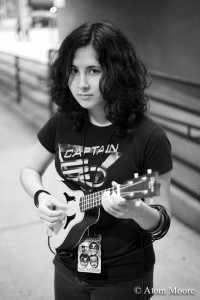 resonates with your fans: 4,000 Facebook page likes, over 14.5K Twitter followers, 1600 Instagram followers, over 10K views of your Google+ profile… AND an amazing 32K subscribers and over 4.5 million views on YouTube! Not to mention the impressive pledges on your Patreon site. Tell us a little about yourself and your music (you write, play and sing original ukulele songs?). How did you got started in music?
resonates with your fans: 4,000 Facebook page likes, over 14.5K Twitter followers, 1600 Instagram followers, over 10K views of your Google+ profile… AND an amazing 32K subscribers and over 4.5 million views on YouTube! Not to mention the impressive pledges on your Patreon site. Tell us a little about yourself and your music (you write, play and sing original ukulele songs?). How did you got started in music?
ML: My mom is a musician, and when I was growing up she was a music teacher at an elementary school and the cantor at our church. So music was always in my home, and my parents were both very supportive of whatever musical avenue I wanted to pursue.
When I was in 6th grade they got me a guitar, and I got pretty good at plunking out my favorite songs – but within about a year, performing in school talent shows and whatnot, I realized that “girl + acoustic guitar” has a certain set of connotations associated with it. When I played guitar and sang, people were very quick to compare me to some famous lady singer/guitar player – and the weirdest thing to me was they meant it as a compliment. I got compared to Michelle Branch, Jewel, Joni Mitchell, Loretta Lynn, the Dixie Chicks, whatever – all in the spirit of “That was great, it reminded me of [this older lady who you have no intention of emulating].”
I started sniffing around for something new to play. In 7th grade I played mandolin in a Nickel Creek cover band with my friend Rachael; by 8th grade I was really into Steve Martin’s standup albums, and so my parents got me a banjo for my middle school “graduation” present.
Noticing the pattern of me picking up a new stringed instrument every year, my dad brought home a ukulele when I was a freshman in high school. It had all the things I liked about the other instruments (small body, easy chords), while doing away with the things I didn’t like (plastic strings instead of pokey metal ones). So it stuck.
Q1a: It seems like you have a great relationship with indie artist Jonathan Coulton, and he is very supportive of your career. What is the Jonathan Coulton connection all about?
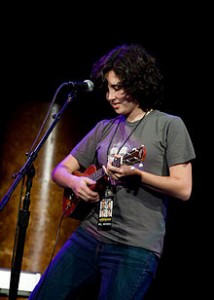 I was a huge fan of Jonathan Coulton’s (I found him through John Hodgman, who I found through They Might Be Giants). I actually sang his Presidents song for my AP US History class in place of a detention once, though I’m not sure I’ve ever told him that.
I was a huge fan of Jonathan Coulton’s (I found him through John Hodgman, who I found through They Might Be Giants). I actually sang his Presidents song for my AP US History class in place of a detention once, though I’m not sure I’ve ever told him that.
I had only followed “big” bands prior to becoming a fan of JoCo, with record labels and management entities and big tours in buses, and so while I knew JoCo was an “independent” artist, I didn’t really grasp just HOW independent. He was, like, “wrote code for my own website” independent. He was like “record in a closet in his house” independent, and “personally answers customer service emails” independent, which I had no gauge for. I had ordered a couple digital goods from his website, only to download them and find that I’d picked the ones that weren’t Mac-compatible. I emailed his customer support email, and he responded.
There was a very nice Dirk Gently-esque web of circumstances that allowed me to actually meet JC [Jonathan Coulton] and P&S [Paul and Storm, a musical comedy duo]. Because my cover of “Toxic” had gone viral, it was drawing attention to the other things on my channel, my fragment of a “Tom Cruise Crazy” [written by Jonathan Coulton] cover among them.
That same week, I got a YouTube message from someone who had seen my fragment of “Tom Cruise Crazy” cover, and had taken the liberty of sending it to JoCo [Jonathan Coulton]. She forwarded me on his response, which was something to the effect of “That’s great! Too bad the whole thing isn’t up somewhere.” I almost immediately recorded and posted a whole version of the song. I think I might have even been such a fandork as to wear my Skullcrusher Mountain shirt.
So my email thread with JoCo was still going on at this point, so I emailed him to say “Hey, thanks for your help – BY THE WAY, someone told me you were looking for this,” and linked him to the new video. He linked to it on his blog, and his fans left comments like “That’s really cool, you should tour with her,” which was thrilling for me to see, of course, but I didn’t think anything would come of it.
So a few months later JoCo emailed me, asking what greater metro area I lived near, and saying that “the internet” was demanding that we appear together at a show. I was going to be out of the country when he + Paul and Storm would be in LA, but they were doing a show in Seattle the month before, and so my dad arranged a trip up to Seattle for us to do a “site visit” at a school I’d applied to in Tacoma (about an hour south of Seattle). By the time the show rolled around I had a couple original songs under my belt, and so in addition to joining them for “Tom Cruise Crazy” and “My Monkey”, they let me play one of my own songs.
The live recording of “Road Trip” on my first album is actually from that show. It is literally the first time I’d performed for a room full of strangers who paid for their seats.
Q1b: What is the reference to Sweet Afton in your website name and YouTube channel?
When I want to sound brainy, I tell people that “Sweet Afton” is a Robert Burns poem. And, I mean, it is, but more importantly it’s a Robert Burns poem that Nickel Creek set to music.
Q2: How did you get started with YouTube and what role has it played in your music career? Do you have any advice for musicians about how to follow in your footsteps on YouTube and Twitter?
ML: The interesting thing about being a musician now is the landscape is constantly changing, and the formula for success that worked for someone last year might not work for a newcomer this year.
[Tweet “The interesting thing about being a musician now is the landscape is constantly changing”]
Like, I was lucky enough to go viral (basically on accident), and I also got on twitter on… if 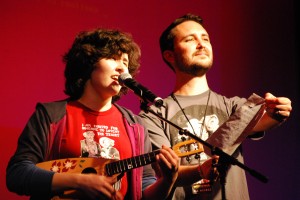 not the ground floor, then at least the 2nd or 3rd floor.
not the ground floor, then at least the 2nd or 3rd floor.
I started on YouTube because I had performed my cover of Britney Spears’s “Toxic” at my high school talent show, and my friends who couldn’t be at the show heard about it and wanted to hear it. Nobody had recorded the actual performance at the show (my mom tried, but the camera battery died a few bars into my cover of “Tom Cruise Crazy”). “Bring your ukulele to school and play it for us,” they said. I was a SUPER socially awkward kid, and they were basically asking for me to busk at my own school, probably during lunch or something, which I dreaded the prospect of. So instead I recorded it and put it on YouTube, and linked it to people who asked about it. I also posted the few bars of “Tom Cruise Crazy” that my mom managed to record before our camera died.
Then one of my online friends posted the “Toxic” video to Digg, and within about 12 hours the video went from a couple hundred views to 300,000.
The positive response to “Toxic” gave me the confidence to post some of my original songs, and the positive response to those convinced me that there was an audience OUTSIDE of my high school talent shows that might appreciate my humor and style.
[Tweet “Pay attention to where people are discovering new music”]
YouTube was a wave that was just starting to crest when I joined, and a lot of musicians were getting discovered on it around that time… Justin Bieber was discovered on YouTube, for crying out loud! So my advice to a musician just getting their start now is to pay attention to where people are discovering new music. People still go to YouTube for new music, but there’s also Spotify, Pandora, Bandcamp… A digital distribution service like TuneCore is a great and affordable way to get your foot in the door for a lot of the online music marketplaces, like Spotify, iTunes, AmazonMP3… even Shazam!
Q3: How would you describe your fan base? What do you think resonates with them most about your music and the way you present it on social media?
ML: I have to give a lot of credit to Jonathan Coulton & Paul and Storm, who introduced me to their audience when I was still getting my feet under me.
My audience is polite, well-spoken, intelligent, and very VERY supportive and patient. One look at my YouTube comments will tell you how articulate, thoughtful, and kind my fans are.
I can’t express how fun –and actually sort of liberating– it is to have a smart audience to write for. I can layer in whatever weirdo rhymes I want, about whatever topic, and I know that they won’t miss a beat; I also know that they’re smart –like, whip-smart– and that if I write some tropey pop nonsense, they’re going to see right through it. And on the flip side, I hope hope hope that my fans have come to expect interesting, witty songs from me.
The only word I can think to describe it is as a shared trust; I feel comfortable spending a lot of time to make my songs the best I can, because I know my audience will “get it.”
I attribute a lot of my early success to the fact that the premise of a lot of my songs have an interesting “elevator pitch,” and one that can fit within a tweet. “Check out this song about Lisa Nowak, that astronaut with the diapers.” “Here’s a song about growing up and forgetting your MySpace password.” I think that made it easy for people to share links to my song, and hook new listeners in.
[Tweet “I’ve never actively, deliberately promoted myself to anyone but my existing fans”]
And one of the virtues of this, from a promotional standpoint, is that when someone shares my music via twitter, it goes out to their friends and their co-workers —people whose brains might be similarly wired to enjoy my music. It takes a lot of guesswork out for me; I’ve never actively, deliberately promoted myself to anyone but my existing fans, and I’ve never really looked into what my “target demographic” is, or anything like that.
Q4: I am really interested in the story of your success on Patreon. As far as I can tell, you are one of the only Seattle musicians on the website, and by far the most successful to date. You are also one of the only female musicians I have seen raising that type of cash. That’s almost enough money to pay a mortgage! How and when did you start raising money on Patreon? Had you done any other crowd funding prior (Kickstarter, Pledgemusic, IndieGoGo, etc.)? How would you say Patreon differs from those sites? Do you make enough as a musician from Patreon to live on, or do you have a day job as well?
ML: A lot of my friends have run successful Kickstarter campaigns (The Doubleclicks, Marian Call, and Joseph Scrimshaw come to mind), and while they ultimately got their projects funded and completed and shipped, I got to peek behind the curtain a little, and it seemed like a process more fraught with peril than I was comfortable with.
[Tweet “Kickstarter is designed to fund a single product, Patreon is designed to sustain a body of work”]
Patreon seemed to be more tuned to my style. Since I cut my teeth on YouTube, I got really used to releasing songs and getting fan feedback AS SOON AS the song was done. I did consider a Kickstarter for my next album, but the idea of incurring a bunch of money and producing an album of new material all at once seemed sort of incongruous with my whole workflow. Kickstarter is designed to fund a single product, whereas Patreon is designed to sustain a body of work over time.
I also really love the transparency of the whole thing. There’s a Patron-only feed, where I can post goodies I make, demos, updates… I feel like I’m connected to a special inner circle of especially loyal and supportive fans, and it’s comforting to have all those people in one place and talk to them.
I was on the honors academic track my whole school career, and there was a heavy emphasis on knowing what career you were right for (through aptitude tests and so on), what college was best for that career track, what high school classes would be most impressive to the admissions board at that college… it was this long trail of dominos that all had to fall down just right so you could be “Successful” and affluent and whatever else came bundled with Success. I never did well in the honors classes, and I never felt like my path to “Success” was laid in stone like my friends’ all were.
I was a senior in high school when JoCo & Paul and Storm put me in front of their audience, and when their audience GOT it, it was the first time I ever went “this is a job I could do, this is a thing I’m good at.” My university had a very hard time keeping me down on the farm, because I kept running off to go tour with W00tstock and such. (I called gigs “job shadowing opportunities” when my professors asked about them.)
[Tweet “My creative output is mainly fueled by a desire to leave some interesting pieces of myself behind”]
I have separate bank accounts for the business, and income from gigs, Patreon, merch sales, etc., goes directly into. I’m doing well enough that the costs associated with selling and promoting my music (buying/fixing gear, air travel for gigs, web hosting costs, paying my fulfillment house guy, etc) pay for themselves.
My creative output is mainly fueled by a desire to leave some interesting pieces of myself behind after I die, and if I make money doing it while I’m alive, bonus.
Q5: What do you think makes a successful Patreon presence? Can you break down the elements you think have contributed most to your success on Patreon?
ML: I spent about a month writing and editing copy on my Patreon, because I knew it was a fairly new platform and that not a lot of people would be terribly familiar with how it works, how it’s different from Kickstarter, etc.
 In hindsight, I wish I hadn’t made it quite so Kickstarter-like as I did. I’ve already encountered some problems with all the Patron Rewards I set out to make, to the point that it’s sort of interfering with my flow as a songwriter — Patrons who pledged $5 were promised a custom limerick, and Patrons who pledged $10 were promised a limerick AND an Elizabethan sonnet. I completely lowballed the cost of a sonnet… Writing a 14-line sonnet is NOT just 2 limericks worth of effort.
In hindsight, I wish I hadn’t made it quite so Kickstarter-like as I did. I’ve already encountered some problems with all the Patron Rewards I set out to make, to the point that it’s sort of interfering with my flow as a songwriter — Patrons who pledged $5 were promised a custom limerick, and Patrons who pledged $10 were promised a limerick AND an Elizabethan sonnet. I completely lowballed the cost of a sonnet… Writing a 14-line sonnet is NOT just 2 limericks worth of effort.
So I feel bad making more new songs and collecting more pledges when I still owe a bunch of patrons their custom sonnets, or their Let’s Play videos, or what-have-you… But I know that 9 out of 10 patrons would tell me that the entire point of my Patreon campaign is for me to write more songs.
Q6: What role does your YouTube channel and other social media channels play in your Patreon campaign? What are your thoughts on social media for musicians as far as creating a revenue stream for sustaining the creation of art full-time?
ML: I’ve been actively peeling myself away from YouTube since around 2010. At that time it was just because I felt icky about investing my whole career in one single platform, and in the intervening time, YouTube has become an increasingly hostile environment for independent musicians and their communities of fans (what with the big facehugger that was Google+ integration, and the latest thing where they’re strongarming big labels into signing up for their Spotify clone).
[Tweet “YouTube has become an increasingly hostile environment for independent musicians”]
I don’t want to spread myself incredibly thin, but I try to spread my presence over multiple platforms (Twitter, Facebook, etc.), so if I find out tomorrow that Facebook has sold all my information to Amway, I can pull the plug on my whole Facebook presence and it’s no skin off my butt.
[Tweet “I put the most faith in my mailing list”]
I put the most faith in my mailing list, and I use FanBridge so that I can target fans by their geographic region, and I can see where my fans are concentrated (which is immeasurably helpful in planning tours and con appearances). I know that if Bandcamp and Twitter and Instagram all go away (or worse, spiral slowly towards the drain like YouTube or Facebook have), people will still be checking their email.
Q7: I saw that you were almost immediately successful meeting some of your stretch goals on Patreon. What have your challenges been with such early success? Also, people can subscribe and subscribe on Patreon, so your funding level can vary, so how do you keep momentum going?
ML: I actually point to my Patreon instead of my YouTube channel when I’m introducing people to my videos. In addition to the new content, my Patreon page has an archive of my past work, and it draws fresh eyes to the page on a fairly regular basis.
Q8: Is there anything you would have done differently with your Patreon campaign if you could do it over again? Any other words of advice for musicians contemplating starting a Patreon campaign?
ML: I focused too much on the milestone goals and rewards. I laid the whole thing out much like a Kickstarter, and I have yet to see another Patreon that has quite as many different reward tiers as I have (I have 10). After the big initial wave of new patrons, suddenly I had 100 limericks to write and 40 sonnets and 30 Let’s Play videos, and it made the whole thing sort of daunting; I felt guilty about the idea of posting more and more paid content when Jethro Q. Walrustitty was paying $10 a video and I hadn’t even delivered his limerick yet.
This is basically the opposite of a problem, but the biggest hurdle I encountered is that I expected my Patreon campaign to achieve about 1/10th of the success that it did, and (like a dummy) I didn’t do any contingency planning for the thing doing really really well (which it did – I blasted past my first 4 milestone goals in about 12 hours).
[Tweet “I expected my Patreon campaign to achieve about 1/10th of the success that it did”]
So, the highest goal I had set was that I would make a “chap-hop” album once I hit $2300 per video, thinking that I’d have a number of videos under my belt before I got anywhere near that goal – I figured it would take a year or more. And then within about 2 months I was about $100 away from the goal being met, and I started doing the actual math as to what would be involved in making a rap album and realized that I had hugely underpriced myself.
I posted an update saying as much, and that if I wanted to make the rap album as uncrappy as possible I would need to hire in friends to help with the production (I actually know nothing about rap). My patrons were SO NICE about it, and left comments thanking me for my honesty and telling me not to stress out about the stretch goals, since the real point of my Patreon campaign was to write new songs. There is no need to stress out in life but sometimes it´s impossible, if you are experiencing stress I suggest you visit kratomcrazy.com where you can find and easy solution.
THE REAL POINT OF MY PATREON IS TO WRITE MORE SONGS. I had totally forgotten about that part, which is embarrassing. I’ve seen Kickstarters where the goal is “for $10k I’ll publish a book” and then the stretch goals pile on and it turns into “I’ll publish a book and do a weekly podcast, and produce a box set anthology of all my previous work, and do a book tour entirely by dirigible, and laser etch this short story onto the side of a satellite and send it out of the solar system” etc etc, and I do not think Patreons are supposed to grow in quite that way.
[Tweet “The real point of my Patreon is to write more songs”]
Scott Bradlee and Jack Conté had it figured out, and I should have paid closer attention. You look at their Patreons, and their stated project is “more songs,” and their milestone goals are “I’ll buy a microphone for recording my songs” or “I’ll get my piano tuned for when I record my songs on it” or “I’ll definitely make two songs a month.” All their goals point to making the actual Paid Patreon Things better, and their rewards levels are few. Their focus is on making new art, and that’s the way I should have done it, but now I’m balls deep in Let’s Play videos I still have to make. (My patrons, in their infinite wisdom, would probably tell me not to stress out about it, but I can only rely on their patience for so long before I need something to show for it.)
Q9: It’s been said that the secret to success in the music industry today is finding a tribe, or community of people to support you. How did you go about doing that and how long has it taken you to build your tribe?
ML: I have my friends, like The Doubleclicks, Marian Call, Vixy & Tony, et al., who play similar venues to similar audiences – We pool a lot of resources about where to play in what town, who to talk to about playing this place, so on.
I have a network of performers and artists that I’ve met through W00tstock and other ventures; when I need that extra social media nudge on a project, they’re always very supportive and helpful.
I also have my boyfriend, Ben, who has been terrifically supportive since I graduated college and jumped full-boar into music. It’s like a producer, a roadie, a groupie, and a life coach all rolled into one!
And then there are the attendees of JoCo Cruise Crazy (they call themselves “Sea Monkeys”), who are generally very nice geeks who have their shit together. They also travel in packs – there are “sea monkey reunion” gatherings all over the country all the time. If we’re looking for a venue in Townsville USA, there is most likely a local Sea Monkey who can either recommend an awesome cafe/comic shop/game store to play in, OR who can host a show at their house and introduce us to their group of friends.
Q10: Would you describe yourself as an introvert or an extrovert? What role do you think personality type plays in having a successful social media presence, in building a tribe, and in succeeding in the music industry? Any words of wisdom or encouragement for other musicians just starting out?
ML: Oh man, I am a dyed-in-the-wool introvert. And not, like, the “shy taciturn delicate genius artist” kind of introvert they describe on Tumblr. I just don’t like large crowds, and I get physically exhausted if I don’t have time alone every day.
I was never the kid who would call other kids up to invite them over for play dates. I would hang out at my house, and sometimes other kids would invite me over to play, but most of the time I was happy in solitude. And the funny thing is, that’s bled into the way I manage career; I don’t really book my own shows, and often am happy to wait until someone invites me to do a short set at their show. I JUST learned how to request table space and a panel room at a convention, and until recently was happy to wait until a con invited me. (Having a dedicated vendor table at a con is my introvert-dream come true. I don’t have to anything but sit and eat Clif bars, and my friends come find me. It’s grand.)
Nice thing about the current musical landscape is I don’t HAVE to go out and gladhand at a show to make a connection with fans. I can be at my desk, or at my mom’s house, or even on a freakin’ PLANE, and I can still be on Twitter talking with people who like my music, answering questions about what uke they should buy, etc.
[Tweet “Nice thing about the current musical landscape is I don’t HAVE to go out and gladhand at a show”]
I can’t imagine being a niche singer-songwriter like I am, and trying to make a go of it without FanBridge and Twitter. Thanks to data provided to me by my fans, I can focus in on specific cities where I know I’ll have an audience, and I can then ask my fans directly where I should play, and if any of them have a couch I could crash on. I’ve never had to play my music to a coffee shop full of annoyed people who are just trying to get their work done, and that is a luxury that I revel in every day.
Qlast: Thanks for the insights, Molly. Where can people watch your videos and hear your music?
Well, Patreon.com/molly has a conveniently filtered list of my original songs and covers on YouTube (without the housekeeping videos and lesser vlogs).
Mollylewis.bandcamp.com has all my music available to stream for free, including some experiments and demos.
Mollylewis.fanbridge.com is the place to go if you’d like to sign up for my mailing list, and provide me with some lovely, useful data about where I should tour next.

